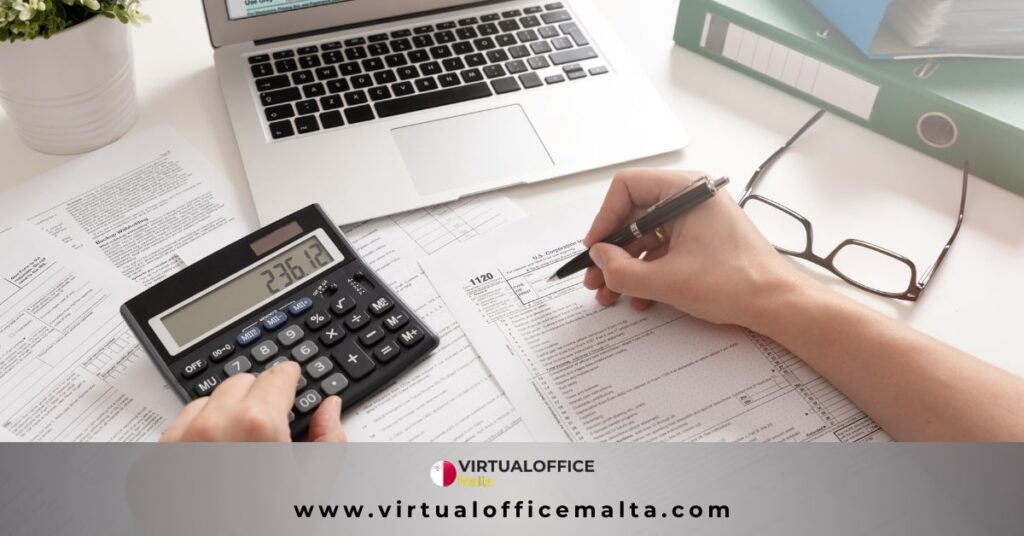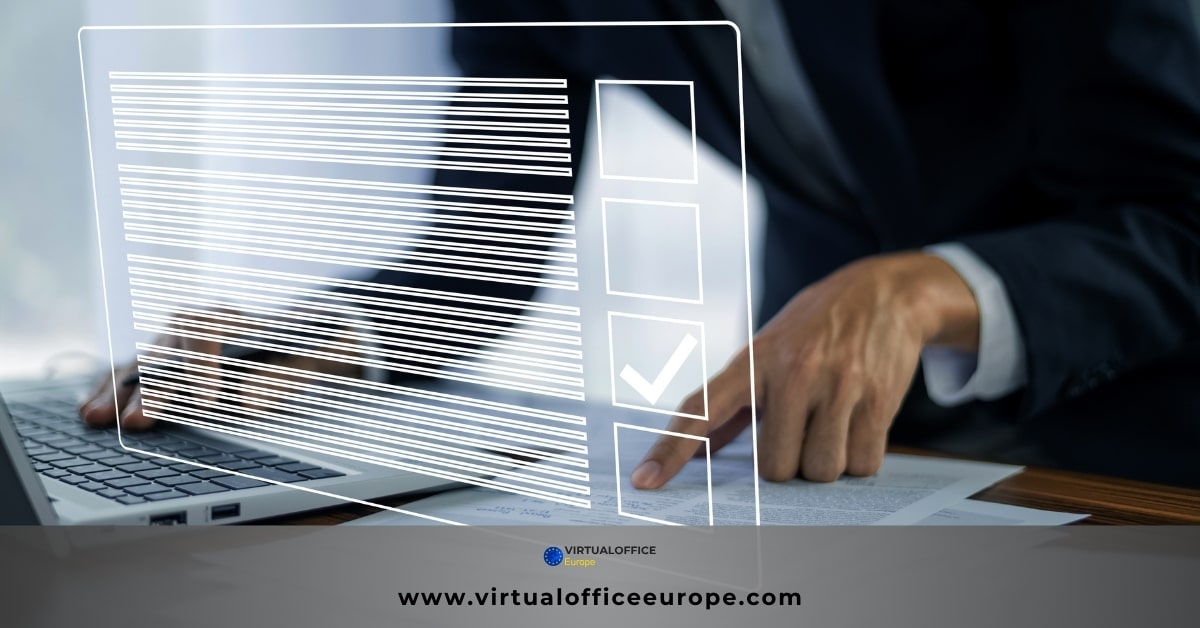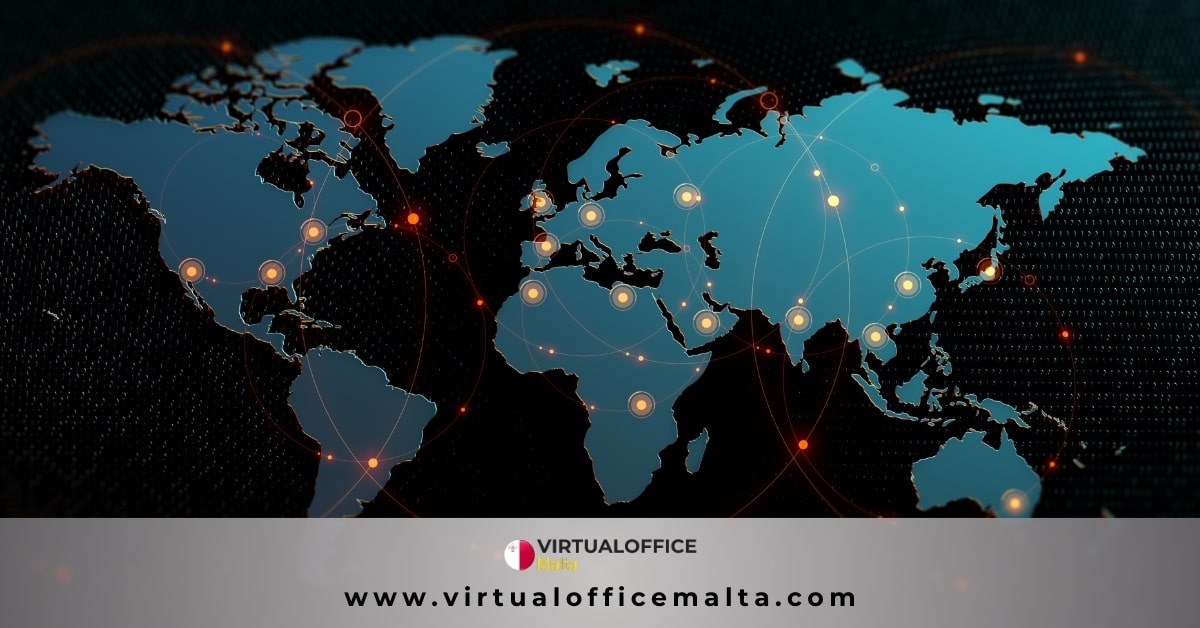In recent years, the concept of virtual offices has gained immense popularity, especially among businesses seeking flexibility and cost-efficiency. A virtual office allows companies to operate remotely while maintaining a prestigious business address. For businesses operating in Malta or considering expanding there, understanding the tax implications of using virtual offices is crucial. This article delves into the essential aspects of virtual offices and taxes in Malta, providing a comprehensive guide for businesses.
What is a Virtual Office?
A virtual office is a service that provides businesses with a physical address and office-related services without the need for a physical office space. These services often include mail handling, telephone answering, and meeting room access. Virtual offices are particularly beneficial for startups, small businesses, and international companies looking to establish a presence in a new market without the high costs associated with leasing physical office space.
Benefits of Virtual Offices
Cost Savings
One of the primary advantages of a virtual office is cost savings. Businesses can significantly reduce overhead expenses such as rent, utilities, and office maintenance. This is particularly beneficial for startups and small businesses operating on tight budgets.
Flexibility
Virtual offices offer unparalleled flexibility. Employees can work from anywhere, reducing the need for daily commutes and allowing for a better work-life balance. This flexibility can lead to increased productivity and employee satisfaction.
Professional Image
Having a prestigious business address can enhance a company’s professional image. A virtual office in a prime location in Malta can impress clients and partners, helping to build trust and credibility.
Virtual Offices and Taxes in Malta
Understanding the tax implications of using a virtual office in Malta is crucial for compliance and effective financial planning. Here are some key points to consider:
Corporate Tax Residency
In Malta, a company is considered tax resident if it is incorporated in Malta or if its management and control are exercised in Malta. The location of a virtual office can influence the determination of a company’s tax residency. If a company uses a virtual office in Malta and conducts its management and control activities from there, it may be deemed a Maltese tax resident and subject to Malta’s corporate tax regime.
Virtual Offices and Taxes in Malta: Permanent Establishment
The concept of a permanent establishment (PE) is vital in international taxation. A PE is a fixed place of business through which a company’s business is wholly or partly carried out. Using a virtual office in Malta could potentially create a PE, depending on the nature and scope of the activities conducted. If a PE is established, the company may be liable to pay corporate tax on the profits attributable to the PE in Malta.
Value-Added Tax (VAT)
Malta’s standard VAT rate is 18%. Businesses operating through a virtual office in Malta must comply with VAT regulations, including registration, charging VAT on taxable supplies, and filing periodic VAT returns. Understanding the VAT implications is essential to avoid penalties and ensure smooth operations.
Double Taxation Treaties
Malta has an extensive network of double taxation treaties (DTTs) with numerous countries. These treaties aim to prevent double taxation and provide mechanisms for resolving tax disputes. Businesses using a virtual office in Malta should be aware of the provisions of the relevant DTTs, as they can impact the tax obligations and benefits available.
Practical Steps for Compliance
Registering the Business
To operate legally in Malta, businesses using virtual offices must ensure proper registration. This includes registering with the Malta Business Registry (MBR) and obtaining a tax identification number from the Commissioner for Revenue.
Keeping Records, Virtual Offices, and Taxes Compliance
Maintaining accurate and detailed records is essential for tax compliance. Businesses should keep records of all transactions, expenses, and income related to their operations in Malta. These records will be crucial for preparing financial statements and filing tax returns.
Consulting with Tax Professionals
Given the complexity of tax laws and regulations, consulting with tax professionals is highly recommended. Tax advisors with expertise in Maltese taxation can provide valuable guidance on compliance, tax planning, and optimizing tax benefits.
Monitoring Changes in Virtual Offices and Taxes in Malta
Tax laws and regulations are subject to change. Businesses should stay informed about any changes in Maltese tax legislation that may impact their operations. Regularly monitoring updates from the Commissioner for Revenue and seeking professional advice can help ensure ongoing compliance.
Virtual Offices and Taxes in Malta explained
Virtual offices offer numerous benefits for businesses, including cost savings, flexibility, and a professional image. However, understanding the tax implications of using a virtual office in Malta is essential for compliance and effective financial management. By being aware of corporate tax residency rules, permanent establishment considerations, VAT obligations, and double taxation treaties, businesses can navigate the tax landscape in Malta successfully.
To ensure compliance and optimize tax benefits, businesses should take practical steps such as proper registration, maintaining accurate records, consulting with tax professionals, and staying informed about changes in tax legislation. With the right approach, businesses can leverage the advantages of virtual offices while meeting their tax obligations in Malta.
In summary, virtual offices can be a strategic asset for businesses operating in Malta, but they come with important tax implications that must be understood and managed. By following the guidelines outlined in this article, businesses can make informed decisions and thrive in the dynamic Maltese market.
4o









